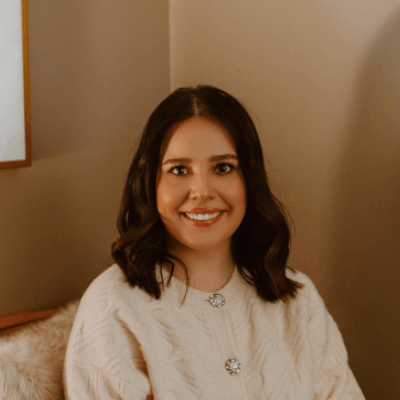
Finding the Right Therapist
The journey of finding the right therapist can be a little scary. There are a lot of factors to consider when picking the right one. For example, the insurance that they accept, where they are located, their specialization, as well as their theoretical orientation. This process can be vigorous and a lot of work. Six months ago, I went through my own process of finding the right therapist. I had been considering it for a while and knew that I was ready to return. It is so important that therapists do the work too and experience the other side of the therapy room! After doing some research and looking at different websites and asking colleagues around for referrals – I FINALLY managed to find someone. Right away, I wanted to make sure we meshed so I scheduled a 30-minute consultation to make sure their specialization aligned with my needs for my therapy process.
That first experience with a therapist sets the tone for how some clients will look at therapy as a whole. It can be daunting to even build up the courage to finally reach out to a therapist or practice and be able to set up the first initial appointment (I recognize how much work my clients have to do before they land in my office). There is no one size fits all type of approach to therapy, therefore it is important to note that a professional that meshes and works for your friend might not work for you!
Steps to finding the right fit –
Step One: What to look for when choosing a therapist
So many of us are used to getting on our phones and looking up anything and everything at our fingertips. We start by searching for a therapist/counselor online and see what pops up. We then judge the therapist or practice off of their reviews because lets be honest that’s exactly what we would do when we look up a hair salon in town or the restaurant with the tastiest tacos (aka Donkey Taqueria). But in all seriousness, we want to be able to pick out a therapist that will be able to help with the initial problem that you need to be addressed. There is a lot more to finding the right therapist than just looking into a five-star rating for the practice. We want to make sure to find their education, credentials, certifications, as well as any specializations that they have on their website.
Make sure to check out the therapist’s “about me” section on their website and see what they specialize in and what their niche is. This can help you hone in on who the therapist is, what vibe they send out to potential clients, and determine if this is the therapist for you. Many therapists will list the different techniques they use and give you a little background on who they are. This helped me a ton with determining who I was going to reach out to.
Step Two: Making the call/sending the initial e-mail
When you have found a few therapists that you think might work for you, give them a call or shoot them an email! Most of the time you can schedule a phone call with the therapist or send an email to have some of your questions answered before making the leap to schedule an appointment. This can also ease you into the process because you can tell over the phone or e-mail if this therapist is a genuine match, with who you will mesh with. As the client, you also have to know if you prefer a therapist who mostly listens while you talk throughout the session or a therapist that is more interactive within the session who can give you feedback and homework assignments. Ask them how they roll when you’re interviewing them. You can ask whatever you need to feel comfortable. Most importantly, focus on how the interaction unravels over the phone to see if this therapeutic relationship can be successful.
Step Three: First Session
The first session can be quite awkward and nerve-wracking! This is all normal. If this is your first time in therapy, your thoughts in the waiting room probably go something like this –“ I am so nervous right now, oh my gosh what are they going to ask me in there, I hope this therapist is the right fit, holy cow what is all this PAPERWORK?” Usually, the therapist will make sure you have filled out all your paperwork and signed the informed consent form, which states your rights and responsibilities as well as the therapist’s. Then, usually right after the client will head into the therapy room with the therapist/counselor and start the session. Throughout the first session, you should feel comfortable and safe telling your story. You should feel heard and validated by the therapist. At the end of the session, the therapist might ask you what your therapy goals are and from there you can agree on a treatment plan. The nerves will have likely subsided and hopefully, you’ll be feeling motivated to make some shifts in your life.
Step Four: Therapy Continued…
After a few sessions, you should feel supported by your therapist and begin to be able to integrate skills that you learn into your everyday routine. I knew after my first session that the rapport I was building with my therapist was genuine and that I felt safe telling my story. This does not mean that everyone should know if they have found the right fit after one therapy session. It might take a few sessions to truly know (and that is totally okay). The most crucial part of the therapy process is the therapeutic relationship between the therapist and client. Every client will have a different treatment plan that is tailored to their therapeutic needs. Choosing a therapist might not be as easy as finding the best tacos or hair salon in town, but just know that doing a little research and consultation can help you find the therapist that is the right fit for YOU!
If you’re feeling stuck here, you can always give our office a call and we’ll help you find the best fit!

About Karolina Jevaltaite
Karolina Jevaltaite (Harmon) LPC, LLMFT, earned her BA in Family Studies and Psychology and her MA in Counseling in Kalamazoo, Michigan. She specializes in women's issues and is passionate to work with women who are struggling with balance, transitions, work stress, self-worth, relationships, trauma, anxiety, and depression. She is fluent in English and Lithuanian. She sees adults at Lifeologie Counseling Grand Rapids Ada.
Meet Me



